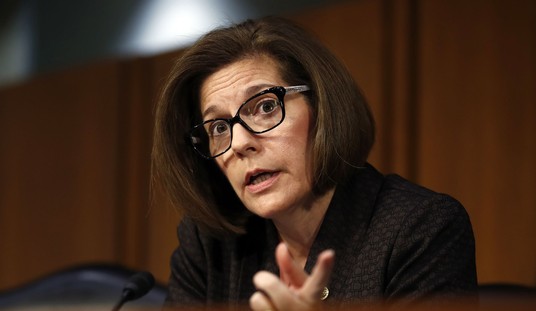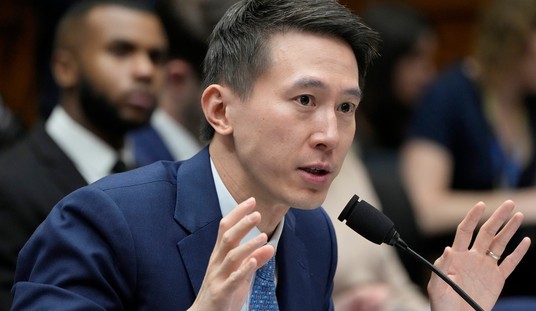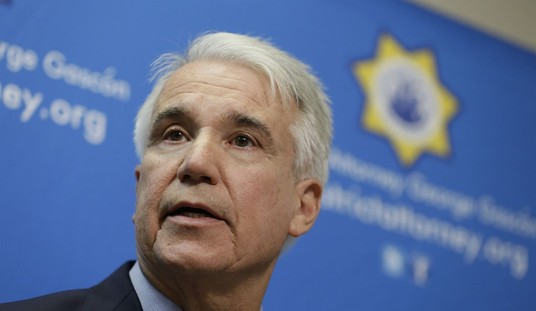“The president’s preemptive attack on the court was in direct reaction to Obamacare’s three days of oral argument. It was a shock. After years of contemptuously dismissing the very idea of a legal challenge, Democrats suddenly realized there actually is a serious constitutional argument to be made against Obamacare — and they are losing it.
“Here were highly sophisticated conservative thinkers — lawyers and justices — making the case for limited government, and liberals weren’t even prepared for the obvious constitutional question: If Congress can force the individual into a private contract by authority of the commerce clause, what can it not force the individual to do? Without a limiting principle, the central premise of our constitutional system — a government of enumerated powers — evaporates. What, then, is the limiting principle?…
“Democrats are reeling. Obama was so taken aback, he hasn’t even drawn up contingency plans should his cherished reform be struck down. Liberals still cannot grasp what’s happened — the mild revival of constitutionalism in a country they’ve grown so used to ordering about regardless. When asked about Obamacare’s constitutionality, Nancy Pelosi famously replied: ‘Are you serious?’ She was genuinely puzzled.
“As was Rep. Phil Hare (D-Ill.). As Michael Barone notes, when Hare was similarly challenged at a 2010 town hall, he replied: ‘I don’t worry about the Constitution.’ Hare is now retired, having been shortly thereafter defeated for reelection by the more constitutionally attuned owner of an East Moline pizza shop.”
“Is Obama’s reference to ‘unelected’ justices an ‘attack’? If so, it’s pretty tame stuff indeed. Obama is characterizing the conservative line that that judicial activism by unelected judges is a bad thing, and arguing that overturning Obamacare would be an example of what conservatives themselves decry. Obama is mainly making an argument about legal precedent here — he’s pointing out that historically, the court has deferred to Congress as a democratically-elected institution in deciding whether to overturn laws, and saying he hopes the Court does the same again.
“I’m not defending Obama’s claim that overturning the law would be ‘unprecedented’ — it wouldn’t — but as ‘attacks’ go, this is pretty weak sauce. And it’s a bit surprising to hear so much whining about it, given the attacks on ‘activist’ judges conservatives have waged for years.
“If you really want to hear an ‘attack’ on the court, go check out F.D.R.’s 1937 address, in which he accused the Court of wanting to banish the nation to a ‘No-Man’s Land of final futility.’ Or check out his Fireside Chat about his court-packing scheme, in which he warned that it was time to “save the Constitution from the Court’ and accused the courts of operating in ‘direct contradiction of the high purposes of the framers of the Constitution.'”
“Just about every player in connection with the President’s remarks about the Supreme Court seem to me to be acting oddly or imprudently.
“What a terrible idea for the President to charge the Supreme Court with an ‘unprecedented, extraordinary step’ of judicial activism if it strikes down parts of the health care law. It was not a bad idea because it constituted bullying of the Court. It was a bad idea – at least from the President’s perspective – because it makes it harder for the Justices to rule in favor of the President’s position. After his very public criticism, a vote to uphold the law by the Justices who sharply questioned the law at oral argument will invariably be seen as cowing to the President – an appearance, I am confident, the Justices very much want to avoid. In other words, by questioning the Justice’s independence, the President made it harder for the Justices whose votes he needs to act in his favor. That, I suspect, is why the President has tried to walk back his remarks…
“And how silly for the Fifth Circuit panel to ask the Justice Department to brief whether the Obama Administration believes that courts have the right to strike down a federal law. It is obvious that the President and DOJ believe courts have that power. And in any event that power in no way depends on the beliefs of the President or DOJ. The request for an answer on the question, based on a presidential remark not at issue in the case, seems like a political intrusion by the court into a political debate.”
“As a brilliant constitutional lawyer deeply devoted to the rule of law, [Obama] has nothing but respect for the critical function that judicial review performs in preserving the American system of constitutional government. Efforts to divine a contrary theory in his remarks were strained at the outset and have grown only more untenable.
“The ‘unprecedented, extraordinary’ step he noted the justices would be taking if they were to overturn the Affordable Care Act was, of course, not the step of exercising judicial review, as the court has done ever since Marbury v. Madison in 1803, but the step of second-guessing congressional judgments about how best to regulate a vast segment of the national economy. No one in the world — certainly none of the justices — can have been surprised to learn that Obama believes his signature domestic achievement fully complies with the Constitution and ought to be upheld — or that the Supreme Court has a decades-old tradition of treading lightly when major regulations of interstate commerce come before it…
“There was no disrespect in the president’s entirely correct observation that precedent and historical practice alike would lead a suitably cautious court to uphold rather than overturn his signature first-term achievement in providing health insurance to millions of Americans. The fact that health care reform has represented a pressing issue for the nation over the course of a century would indeed make a decision to strike down the law all the more jarring. But the notion that the president’s recognition of that fact somehow crossed the Rubicon in our separation of powers by seeking to diminish the court’s independence is patently absurd.”
“If the president was so concerned about a court overturning a duly constituted law passed by a democratically elected Congress, why was he urging a small group of unelected judges to strike down DOMA, a measure that won passage by a far greater margin than Obamacare?
“The answer is, of course, that the administration is making a political argument for its positions, not a legal one. And perhaps counterproductively, the president’s decision to bring up Obamacare’s history in Congress could end up reminding the public of the tangled circumstances of its passage. Even with a huge majority in the House, Democrats barely passed the bill in the face of bipartisan opposition. And in the Senate, Obamacare succeeded as the result of a set of freakish circumstances that allowed Democrats to pass an unpopular measure into law.
“Those circumstances included the wrongful prosecution of a Republican senator (Ted Stevens), resulting in his seat going to a Democrat; the defection of another Republican senator (Arlen Specter) to the Democrats; and a change in one state’s laws (Massachusetts) to allow a Democratic governor to immediately appoint a Democrat to succeed the late Sen. Ted Kennedy and give the Senate a 60-vote Democratic supermajority. And then there were the policy payoffs to some Democratic senators who were undecided about the bill. Even then, Democrats held a filibuster-proof majority in the Senate for just 134 days before Massachusetts elected a Republican senator, Scott Brown, who ran specifically on the platform of stopping Obamacare. But in those 134 days, Democrats managed to pass an unpopular bill into law without a single vote to spare.”
“John Roberts has to know and see all this. He has to know that Fifth Circuit Judge Jerry Smith, who asked federal prosecutors for a homework assignment in the wake of Obama’s remarks—a brief stating the Justice Department’s position on judicial review, that had to be at least three pages, single-spaced!—is making conservatives look silly and cheapening the bench. And he has to know that the court’s reputation will suffer an immense blow if it overturns the mandate. It will be seen by a large majority—even a lot of people who weren’t crazy about the law—as completely political. Remember, they didn’t have to take the case in an election year in the first place. They could have put it off. But the court said it must do this now. If it then overturns the ACA, it will look and smell like a political hit job to many Americans. And the court would be saying to America, ‘We know what you think, and we don’t give a damn.’…
“The court already—after Bush v. Gore and Citizens United in particular—has one leg dangling off the cliff. If it is going to be nakedly political in its decisions, it will invite political blowback. And if it gets pushed off the cliff, then who or what is our final arbiter in America? The great irony of the conservative moral absolutists is that they have ushered in—by arguing that nothing is above or beyond politics, that all the institutions Americans used to respect were in fact infested with liberal biases and presumptions—the greatest period of relativism in American history. We no longer universally respect anything. There is no reason the court should be immune from that. If the ACA is gutted, it will be liberals who will seek revenge on the court, but remember that it was conservatives who opened the door to pure politicization in the first place.”







Join the conversation as a VIP Member